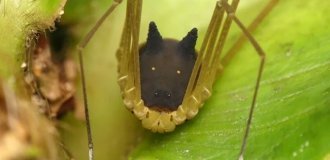Did you know that energetic ancient Egyptian brewers accidentally discovered antibiotics several hundred years before they were officially invented? 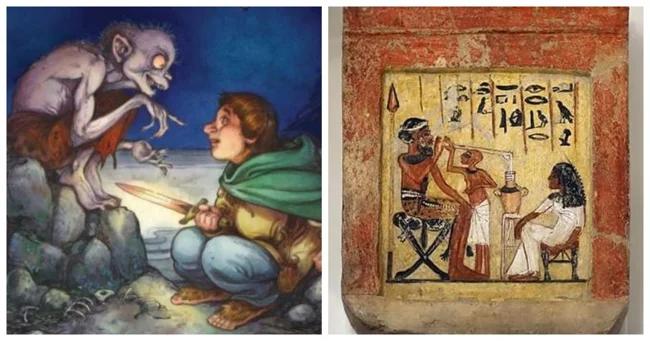
If not, then welcome to a fresh batch of little-known but instructive facts that will make you reflect on our world and realize how little we actually know about it compared to the overall volume of information.
1. Two Truths of "The Hobbit" 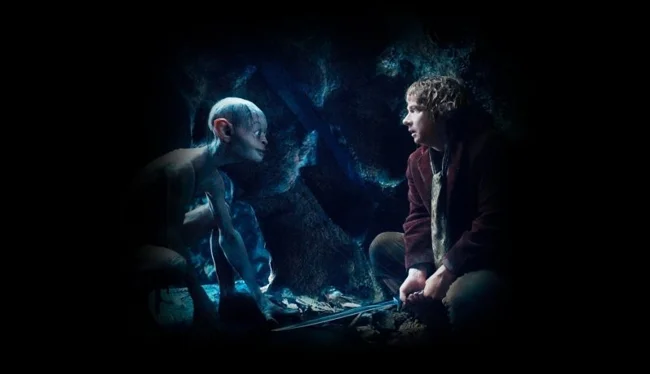
In the original 1937 version of "The Hobbit," Gollum was a much more courteous creature. After solving the riddles, he humbly showed Bilbo the way out, even after the Ring was lost. Since his nature was not revealed, the illustrators gave free rein to their imaginations, depicting everything from a ghost to a colossal monster.
Later, while working on "The Lord of the Rings," Tolkien realized that Gollum's nobility belied the dark power of the One Ring. For the second edition in 1951, he rewrote the scene, making it darker: Gollum attempted to attack the hobbit.
To connect the two versions, Tolkien came up with an ingenious explanation. The first, sanitized story was a lie Bilbo told the dwarves to conceal the true nature of his discovery. 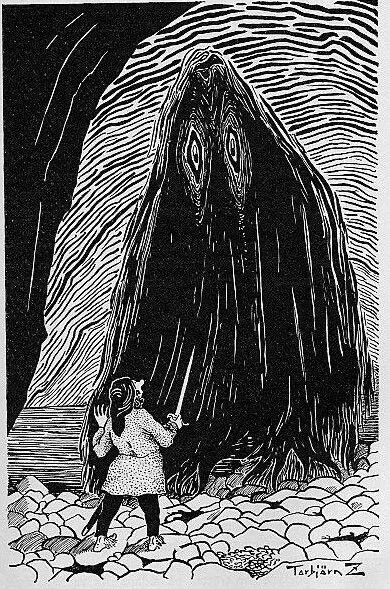
Gollum in the 1947 Swedish edition
2. The All-Knowing Nose 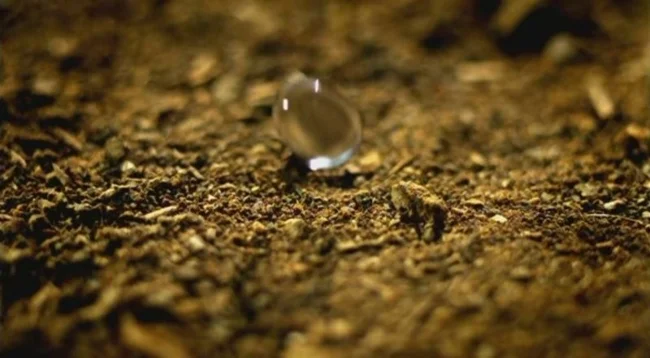
The human nose can detect the scent of petrichor—that same earthy scent of rain—more acutely than a shark can smell blood in the water. We also recognize geosmin, an organic substance secreted by soil bacteria and algae, which is especially noticeable when in contact with ozone and water. This odor tells us how long ago it rained in a given area. It's quite possible that this subtle mechanism has been preserved in us as an evolutionary survival tool, helping our ancestors find water.
3. The Taxi Driver Who Broke the Government in 17 Seconds 
During Prohibition, US authorities sent inspectors to various cities to test how quickly alcohol could be obtained. New Orleans set a record of sorts – approximately 17 seconds. The agent had just disembarked from the ship, got into a taxi, and the driver immediately offered him a drink.
4. The Underground Internet 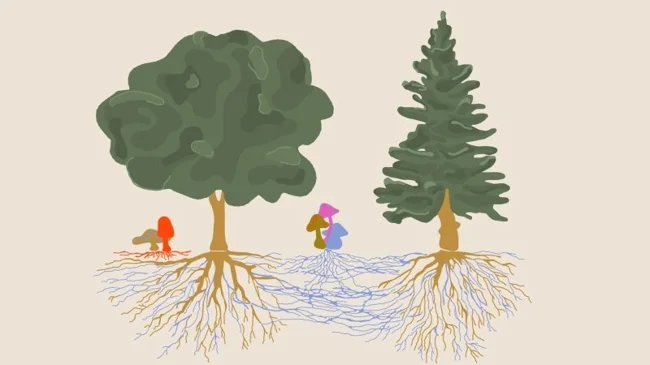
Trees are able to "communicate" with each other through a gigantic underground network created by mycelium. Through it, they not only share nutrients with their neighbors but also transmit chemical alarm signals about pest infestations or approaching diseases. Scientists call this complex ecosystem the "Wood Wide Web."
5. Day of Terror and Remembrance 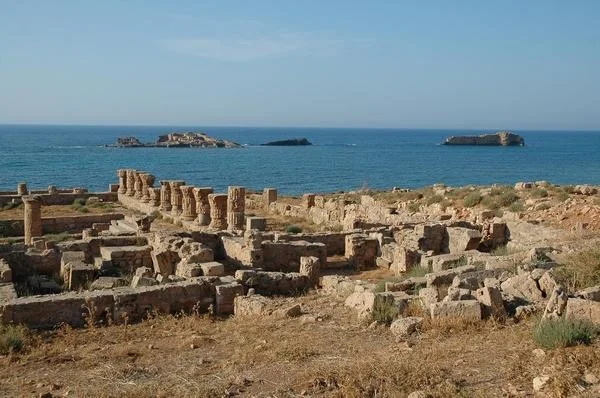
In 365 AD, a powerful earthquake off the coast of Crete caused a colossal tsunami. It was so devastating to Alexandria, Egypt, that annual mourning events commemorating the disaster—the so-called "Day of Terror"—were held there until the end of the sixth century. This means the memory of the tragedy lasted for over 200 years.
6. The Accidental Discovery of Antibiotics 4,000 Years Before Science 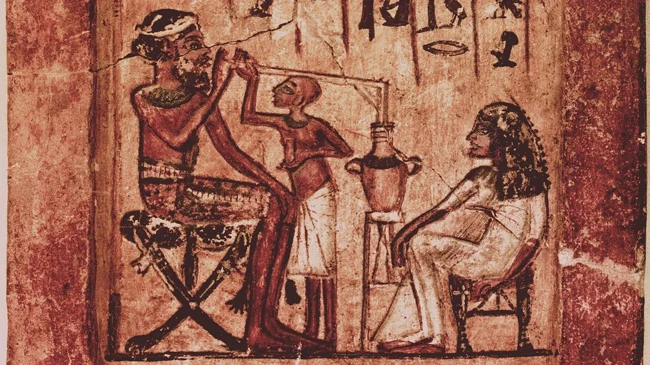
Ancient Egyptian beer contained tetracycline, a powerful antibiotic officially discovered by scientists only in 1948. This discovery was made when archaeology students attempted to recreate the ancient beverage recipe. The hypothesis was confirmed when chemical analysis of mummified remains revealed high levels of tetracycline in bone tissue and dentin, indicating systematic consumption of the antibiotic during life.
7. The Unexpected History of a Common Word 
The word "poka" as a farewell is as old as revolutions and wars. Even in the 19th century, it was used only in long formulas like "proschayte poka" or "poka bless you," meaning "be well until our next meeting."
It only became an independent and somewhat familiar farewell during the First World War. Even in the 1930s, Ushakov's dictionary listed it as colloquial and familiar, demonstrating how new and informal it seemed at the time.
8. Freedom by Request 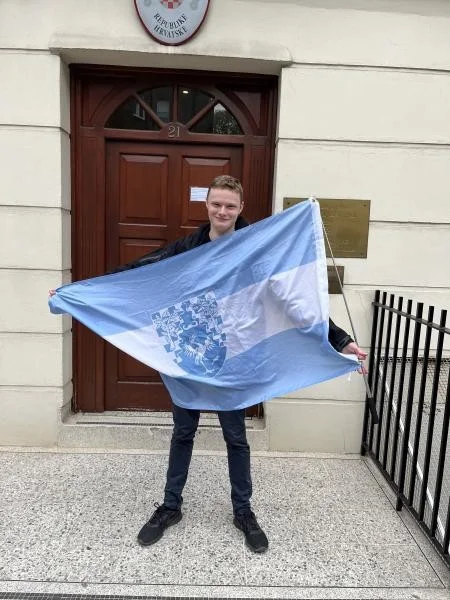
A 20-year-old British programmer, Daniel Jackson, founded a new country, Verdis, on a disputed piece of land between Croatia and Serbia. This 50-hectare patch of land on the Danube is not under the direct control of either neighboring country.
The microstate already has its own symbols, website, and goals: environmental sustainability, human rights protection, and ethnic reconciliation. Around 400 people, selected from 15,000 applicants worldwide, have received Verdis citizenship.
Add your comment
You might be interested in:






